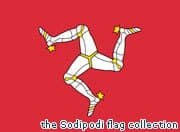Politicians in the Isle of Man have voted overwhelmingly to reject a Bill which called for assisted suicide to be legalised.
Members of the House of Keys, the Manx Parliament, voted 17 to 5 to reject the call, put forward by the Minister for Home Affairs, Juan Watterson.
The Isle of Man is one of the most recent places to oppose the introduction assisted suicide after the Welsh Assembly voted against it in December.
Murder
Mr Watterson said: “I thought the vote would be a lot closer than that but that is the democratic process – it is what it is and you have to respect that.”
Peter Murcott, who campaigns against assisted suicide, said that the plans go “against Christian beliefs”.
He said: “If you kill someone intentionally then in law that is murder and that is what euthanasia is”.
Encouragement to die
A proposal in favour of legalising assisted suicide was defeated in the Welsh Assembly, after only twelve Assembly Members (AMs) voted in favour.
The motion, tabled by Plaid Cymru AM Simon Thomas, was opposed by 21 AMs from across the political spectrum, with a further 20 choosing to abstain.
The Conservative member for South Wales East, William Graham, firmly opposed assisted suicide during the debate saying that patients would be “encouraged” to end their lives.
Threat to autonomy
Warning of a “real threat to autonomy”, he said: “Killing people is cheaper than providing palliative or long-term care, and health care resources will always be constrained.
“This must mean that health care teams and society in general will be under pressure to encourage patients to choose suicide.”
He added: “A large number of people who are terminally ill have found richness and purpose in their lives, despite pain and hardship.”
Value
The AM said: “Good palliative care restores quality of life without needing to erase the life itself.”
Calls to legalise assisted suicide have also been made in the Westminister and Scottish Parliaments.
Writing recently in The Scotsman, Dr Calum MacKellar, Director of Research at the Scottish Council on Human Bioethics, said that legalising assisted suicide in Scotland would mean accepting “that some individuals can have, for the first time in history, lives which no longer have any inherent worth and meaning”.

